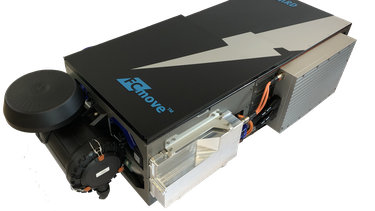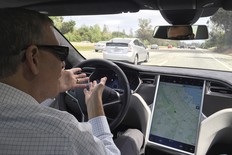Could we be on the cusp of yet another Ballard hydrogen comeback?
Deal with Adani Enterprises could bring Canadian hydrogen FCEV company back from the brink.

Article content
Good golly, Miss Molly. Could we be seeing, what is it now, the third or is the fourth resurrection of Ballard? No matter how many times its seems to be at death’s door, the Vancouver expert in all things hydrogen seems to find a way to bounce back.
Advertisement 2
Article content
This time, according to Reuters, it’s thanks to India’s Adani Enterprises, which plans to build fuel cell-powered heavy-duty trucks and other mining equipment. As Adani sees it, Indian truck maker Ashok Leyland will supply the truck chassis while Ballard will kick in the powertrain.
Nor does this seem like one of Ballard’s oft-touted, seldom-completed boondoggles. For one thing, Adani is chaired by Asia’s richest man, Gautam Adani, who has said he plans to invest US$50 billion in green hydrogen and the infrastructure to support it. According to Reuters, he wants to generate no less than three million tons of the cleaner-than-thou “green” hydrogen annually.
Recommended from Editorial
Advertisement 3
Article content
More importantly for Ballard’s future, the fuel-cell electric truck in question is slated for first deliveries later this year, and the Indian government has put aside more than US$2 billion to subsidize green hydrogen production.
Closer to home, U.S. president Biden’s Inflation Reduction Act has also rekindled Ballard’s hopes. Not only is there subsidies of up to US$40,000 available for fuel cell-powered trucks but the government is offering US$3 a kilogram tax incentives for hydrogen production, again, as long as it’s clean and green. That would, according to Recharge News, bring the price down to US$0.73 per kilogram, cheap enough to make fuel-powered vehicles competitive with EVs, at least when their batteries are not charged at home.
Against all expectations, Ballard may yet make believers of us all.

















